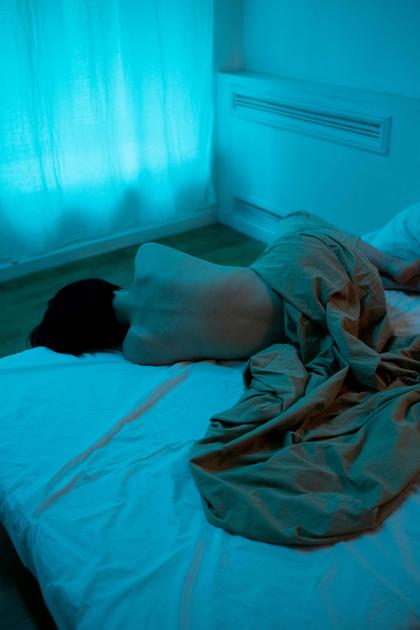Melatonin and Women’s Hormonal Health: Side Effects Explained Clearly
Are you a woman over 30 grappling with insomnia or hormonal imbalance? Melatonin and women’s hormonal health often intersect, bringing both solutions and challenges. Many women silently endure fatigue, anxiety, and feelings of imbalance as they navigate these years. Understanding how melatonin interacts with your hormonal health is crucial for finding a path to better well-being. This article will delve into the side effects of melatonin, empowering you with knowledge and practical insights.
Understanding Melatonin: What You Need to Know
Melatonin is a hormone that is produced by the pineal gland in the brain. It plays a crucial role in regulating sleep-wake cycles, commonly known as circadian rhythms. For women, melatonin can be particularly important as hormonal fluctuations during various life stages, such as menstruation, pregnancy, and menopause, can disrupt sleep patterns.
In many cases, women over 30 find themselves struggling with sleep due to stress, anxiety, or hormonal changes. Understanding melatonin can help navigate these challenges. It is naturally produced in the body, but it can also be taken as a supplement to aid in sleep.
However, like all supplements, melatonin can have side effects that are essential to consider.
The Role of Hormones in Women’s Health
Women’s health is deeply influenced by hormones, which affect physical, emotional, and mental well-being. Key hormones like estrogen and progesterone fluctuate throughout a woman’s life, impacting everything from mood to metabolic health.
As women age, hormone levels change, leading to symptoms such as fatigue, mood swings, and sleep disturbances. Stress is another player here, often exacerbating hormonal imbalances. Recognizing how these hormones work together is vital for understanding personal health.
How Melatonin Affects Your Hormonal Balance
Melatonin interacts with various hormones in the body, notably estrogen and progesterone. Studies have shown that melatonin can influence the release of these hormones, potentially impacting menstrual cycles and overall hormonal balance.
When melatonin levels are optimal, women may experience improved sleep and reduced symptoms associated with hormonal imbalances. However, improper use or excessive doses can cause disruptions, leading to side effects such as headaches, dizziness, and even mood changes.
Common Side Effects of Melatonin in Women
While melatonin is generally considered safe, it is essential to be aware of potential side effects that can arise, particularly in women:
- Daytime Drowsiness: Some women report feeling groggy the next day after taking melatonin.
- Hormonal Changes: Melatonin can affect menstrual cycles and alter hormone levels.
- Short-term Mood Changes: Some may experience feelings of depression or irritability.
- Headaches and Dizziness: These are common side effects, especially with higher doses.
Melatonin as a Natural Sleep Aid: Pros and Cons
Melatonin is often heralded as a natural solution for sleep issues. Let’s explore its pros and cons:
- Pros: Effective for many in promoting sleep, particularly with jet lag or shift work.
- Cons: Doesn’t work for everyone and can cause side effects, particularly when not used correctly.
The Connection Between Stress and Hormonal Health
Stress is a significant factor that can lead to hormonal imbalances. When stressed, the body produces cortisol, which can interfere with melatonin production and disrupt sleep. Many women find themselves in a cycle: stress leads to poor sleep, which exacerbates hormonal issues.
Learning to manage stress through mindfulness, meditation, or yoga can benefit sleep and hormonal health significantly. Small lifestyle changes can lead to significant improvements.
Lifestyle Changes to Support Better Sleep
Improving sleep hygiene and making mindful lifestyle changes are crucial for boosting melatonin production and hormonal balance:
- Establish a Sleep Routine: Go to bed and wake up at the same time every day.
- Create a Restful Environment: Ensure your bedroom is dark, quiet, and cool.
- Limit Screen Time: Reduce exposure to blue light from devices before bedtime.
- Mindful Eating: Avoid heavy meals, caffeine, and alcohol before sleeping.
Alternative Remedies for Hormonal Imbalance
For those not wanting to rely solely on supplements, there are alternative remedies that can help balance hormones:
- Herbal Supplements: Certain herbs like chasteberry and black cohosh may assist with hormonal balance.
- Dietary Changes: A balanced diet rich in whole foods can nourish hormonal health.
- Regular Exercise: Physical activity helps manage stress and support hormone regulation.
When to Consult a Healthcare Professional
If you are experiencing severe symptoms related to hormonal imbalance, such as significant mood swings or persistent sleep issues, it is wise to seek professional advice. A healthcare provider can guide you on safe supplementation and help identify underlying health concerns.
Empowering Your Journey Toward Hormonal Wellness
As women, it is important to recognize that feeling good is possible. By understanding how melatonin, lifestyle changes, and self-care practices impact hormonal health, you can reclaim your well-being.
Many women are overcoming challenges without resorting to heavy medications. See here how many women are finding solutions without heavy medications. Remember, it is all about small, manageable steps toward improving how you feel.
Believe in your ability to transform your health. You are not alone in this journey and there is support available that can illuminate your path to better hormonal health.













